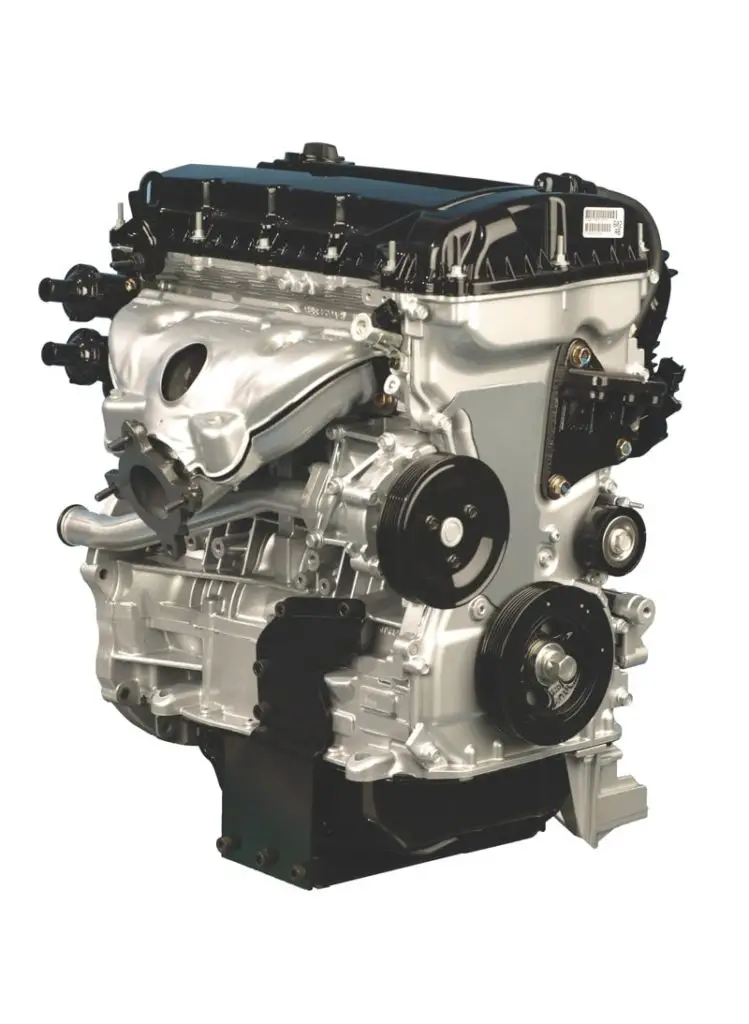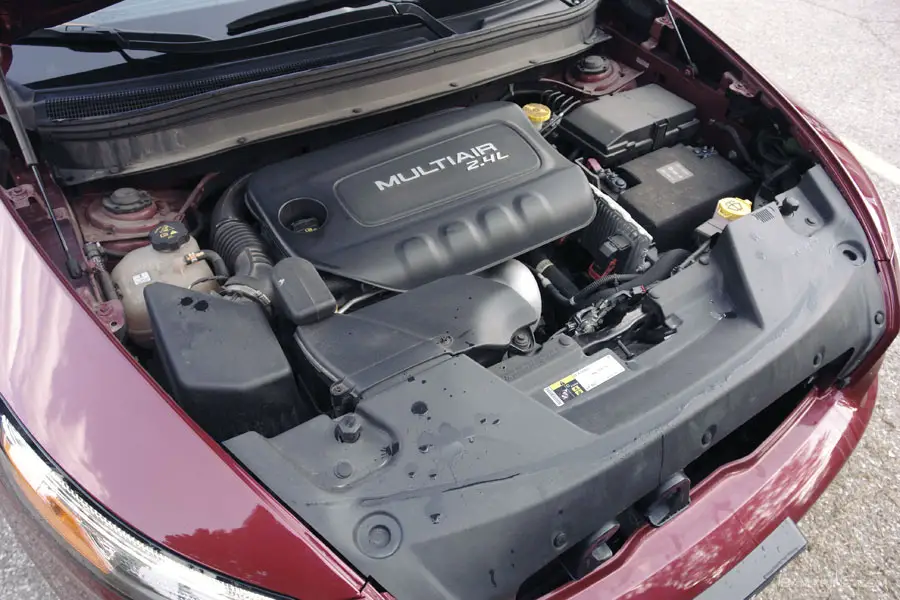Jeep 2.4L engine problems can include issues such as excessive oil consumption, carbon buildup, and timing chain tensioner failures. These problems can lead to reduced engine performance, increased maintenance costs, and potential engine damage.
The Jeep 2.4L engine, commonly known as the Tigershark, has been a staple in various Jeep models like the Cherokee, Renegade, and Compass. It offers a blend of performance and fuel efficiency, making it an attractive option for many Jeep enthusiasts. Introduced as part of Jeep’s drive to improve fuel economy while maintaining the power that Jeep models are known for, the 2.4L engine replaced earlier, less efficient engines.
Despite the engine’s solid reputation, several issues have surfaced over the years that owners should be aware of. From problems with oil consumption to carbon buildup and even issues with the timing chain tensioner, the 2.4L engine, like any piece of machinery, is not immune to issues. This article will explain the most common Jeep 2.4L engine problems, providing practical solutions and tips.

Contents
Common Problems with the Jeep 2.4L Engine
While the Jeep 2.4L engine offers a great balance of power and fuel efficiency, it is not without its share of issues. Here are the most common problems that have been reported by Jeep 2.4L engine owners, including their causes, symptoms, and possible solutions.
1. Excessive Oil Consumption
One of the most commonly reported issues with the Jeep 2.4L engine is excessive oil consumption. Many owners of the 2.4L engine have reported that their vehicles consume an unusual amount of oil, sometimes requiring oil to be topped off every few thousand miles. This can be concerning because if left unchecked, oil consumption can lead to engine wear, reduced engine performance, and even engine failure.
Causes of Excessive Oil Consumption
- Worn Piston Rings: Worn piston rings allow oil to seep into the combustion chamber, causing it to burn off during combustion. This leads to excessive oil consumption and smoke from the exhaust.
- Faulty PCV Valve: A malfunctioning Positive Crankcase Ventilation (PCV) valve can cause excessive oil vapor to be drawn into the intake manifold, leading to higher oil consumption.
- High-Pressure Oil System: The 2.4L engine uses a high-pressure oil system, and under certain driving conditions, this system can lead to oil consumption issues.
Symptoms of Excessive Oil Consumption
- Frequent Oil Top-Ups: One of the most apparent signs of excessive oil consumption is the need to top up your oil more frequently than normal.
- Oil Warning Lights: Some drivers may notice the oil pressure warning light coming on due to low oil levels caused by excessive consumption.
- Burning Oil Smell: If oil is leaking into the combustion chamber, you may notice a strong burning oil smell while driving.
Solutions for Excessive Oil Consumption
- Regular Oil Checks: One of the simplest ways to manage excessive oil consumption is by regularly checking your oil levels and topping off when needed. Ensure you use high-quality oil and adhere to the recommended oil change intervals.
- PCV Valve Replacement: If the PCV valve is malfunctioning, it should be replaced promptly. A new, properly functioning valve will help control the oil vapor in the intake manifold.
- Piston Ring Replacement: If worn piston rings are the culprit, the only solution is to replace them, which may involve extensive engine disassembly and repair.
2. Carbon Buildup on Intake Valves
Another common problem with the Jeep 2.4L engine is carbon buildup on the intake valves. This issue is most prevalent in direct injection engines, like the 2.4L engine, because direct injection bypasses the intake valves and doesn’t provide the same cleaning effect as older port-injection engines. Over time, carbon can build up on the valves, leading to performance issues.
Causes of Carbon Buildup
- Direct Fuel Injection: Direct injection systems spray fuel directly into the combustion chamber, meaning fuel doesn’t pass over the intake valves to clean them. This leads to carbon accumulation on the intake valves.
- Low-Quality Fuel: Using low-quality or impure fuel can accelerate carbon buildup on the intake valves, further restricting airflow.
Symptoms of Carbon Buildup
- Rough Idling: Carbon buildup can cause rough idling, where the engine feels shaky or unstable at idle speeds.
- Decreased Acceleration: As carbon buildup restricts airflow, you may experience sluggishness or delays in acceleration.
- Increased Fuel Consumption: Blocked intake valves can reduce engine efficiency, causing higher fuel consumption.
Solutions for Carbon Buildup
- Regular Highway Driving: Taking the vehicle on longer drives at highway speeds can help burn off excess carbon, as the engine will reach higher temperatures and burn fuel more efficiently.
- Intake Valve Cleaning: The most effective way to address carbon buildup is by cleaning the intake valves. This may require a professional cleaning service, as the intake system needs to be disassembled for a thorough clean.
- Fuel System Additives: Using fuel additives designed to clean the intake system can help reduce carbon deposits. However, this is more of a preventive measure and may not work for severe buildup.
3. MultiAir System Failures
The Jeep 2.4L engine utilizes Fiat’s MultiAir system to control the intake valves and optimize engine performance. While this system offers advantages in terms of efficiency and emissions, it has also been associated with certain failures that can lead to poor engine performance.
Causes of MultiAir System Failures
- Faulty Sensors: The MultiAir system relies on sensors to control valve timing. If these sensors fail or malfunction, the system can lose its ability to optimize performance.
- Oil Contamination: Contaminated oil can affect the MultiAir system’s solenoids, leading to performance degradation or even system failure.
Symptoms of MultiAir System Issues
- Loss of Power: A malfunctioning MultiAir system can cause a noticeable loss of power and acceleration.
- Check Engine Light: The check engine light will likely illuminate if there is a malfunction in the MultiAir system.
- Poor Fuel Economy: A failed or malfunctioning MultiAir system may cause poor fuel efficiency due to improper valve timing.
Solutions for MultiAir System Failures
- Software Updates: Sometimes, the MultiAir system can be recalibrated with a software update to resolve sensor or timing issues.
- Component Replacement: If the solenoids or sensors are damaged, they will need to be replaced. Regular oil changes using the recommended oil type can also help avoid this issue.
4. Timing Chain Tensioner Issues
The timing chain tensioner is responsible for keeping the timing chain taut, ensuring the correct synchronization of the engine’s valves and pistons. In some Jeep 2.4L engines, the timing chain tensioner has been known to fail, which can lead to engine noise, misfires, or severe engine damage if not addressed in time.
Causes of Timing Chain Tensioner Problems
- Worn Tensioner: Over time, the timing chain tensioner may wear out, causing slack in the timing chain, which can lead to a noisy engine or improper valve timing.
- Oil Contamination: Contaminated oil can lead to wear on the timing chain and tensioner, causing failure.
Symptoms of Timing Chain Tensioner Problems
- Rattling Noises: A common symptom of a worn timing chain tensioner is a rattling or clicking noise coming from the engine, particularly at idle.
- Check Engine Light: Misfires or timing issues can cause the check engine light to appear.
- Poor Acceleration: A malfunctioning timing chain tensioner can cause a loss of power and poor acceleration.
Solutions for Timing Chain Tensioner Problems
- Regular Oil Changes: Ensure you are using the correct oil and change it regularly to prevent wear on the timing chain and tensioner.
- Tensioner Replacement: If the tensioner has worn out, it will need to be replaced. In some cases, the timing chain may also need to be replaced if it has become damaged.
5. Exhaust Manifold Cracks
Cracked exhaust manifolds are a known problem in the Jeep 2.4L engine, particularly due to the high heat generated by the turbocharged engine. Over time, the manifold can crack, leading to exhaust leaks and engine performance issues.
Causes of Exhaust Manifold Cracks
- Thermal Stress: The manifold is subject to extreme heat, which causes it to expand and contract over time, leading to cracks.
- Material Defects: Some exhaust manifolds may be prone to cracking due to poor manufacturing materials or design.
Symptoms of Exhaust Manifold Cracks
- Loud Engine Noise: A cracked manifold can lead to loud, tapping noises coming from the engine.
- Reduced Power: Exhaust leaks can lead to a reduction in engine power, especially when accelerating.
- Check Engine Light: A cracked exhaust manifold can trigger the check engine light due to increased emissions.
Solutions for Exhaust Manifold Cracks
- Inspection: Regularly inspect the exhaust manifold for cracks or signs of wear.
- Replacement: If a crack is found, the manifold will need to be replaced with a new one.

Maintenance Tips for the Jeep 2.4L Engine
To ensure your Jeep 2.4L engine remains reliable and runs smoothly for years to come, follow these maintenance tips:
- Regular Oil Changes: Change the engine oil every 5,000 to 7,500 miles using the correct oil type.
- Check Engine Fluids: Regularly check engine coolant, brake fluid, and transmission fluid levels to keep the engine running smoothly.
- Fuel System Maintenance: Clean fuel injectors and inspect the fuel system periodically to ensure optimal performance.
- Regular Inspections: Check for exhaust leaks, timing chain issues, and carbon buildup to prevent major problems from arising.
Frequently Asked Questions
Here are some FAQs about Jeep 2.4L engine problems –
1. How often should I change the oil in my Jeep 2.4L engine?
It is recommended to change the oil every 5,000 to 7,500 miles, depending on driving conditions.
2. Is excessive oil consumption a common problem with the Jeep 2.4L engine?
Yes, excessive oil consumption has been reported by many Jeep owners, particularly in early models of the 2.4L engine.
3. Can carbon buildup affect engine performance?
Yes, carbon buildup can lead to rough idling, poor acceleration, and decreased fuel efficiency.
4. What should I do if I hear rattling noises coming from the engine?
Rattling noises can indicate a timing chain tensioner problem. It’s best to have your engine inspected and the tensioner replaced if necessary.
5. How can I prevent exhaust manifold cracks?
Regular inspection and prompt repairs of any cracks or damage to the manifold can help prevent issues and improve engine performance.
Conclusion
While the Jeep 2.4L engine offers excellent performance and fuel efficiency, it is not without its share of problems. Issues such as oil consumption, carbon buildup, and timing chain tensioner failure can affect performance, but they are manageable with the right maintenance and timely repairs.